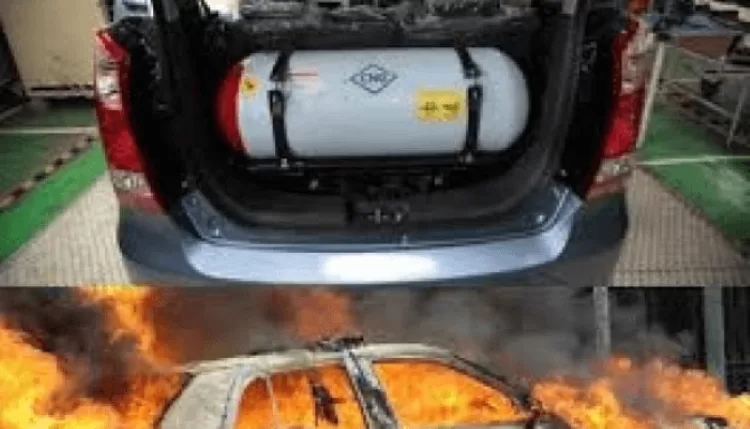As Nigeria vehicle owners are transiting from petrol aka PMS to the Compressed natural Gas, CNG, the government of Malaysia has a different approach to the issue.
The Malaysia government, announced few days ago that CNG will be phased our soon in the country, citing safety reasons.
The magazine reports that a CNG-powered vehicle exploded at the NIPCO filling station in Aduwawa, Benin, Edo State, on Wednesday leaving three people severely injured, including a motorist who suffered eye injuries.
The incident has further raised salient posers on the safety of CNG powered vehicles, even though the Nigerian government insists that it’s very safe to use the product, so long motorists adhere to safety measures.
Vehicle owners in Nigeria have been embracing CNG as the veritable alternative to petrol, to fuel their vehicles, due to the high cost of the latter.
Amidst the debate in Nigeria, the Asian country has fixed the first half of next year as deadline to phase out CNG also known as NGV.
President Bola Ahmed Tinubu had recently urged petrol consumers in the country to switch to CNG because of the daily rising cost of petrol following the removal of subsidy.
Since it came to office last year, the administration has increased the pump price of petrol by over 500 percent, to at least N1,200 per litre.
The development has forced many vehicle owners in the country to search for other energy alternatives such as CNG to power their vehicles.
Amidst the upbeat among car owners in Nigeria, Malaysia said the decision to phase CNG out is in the interest of the country and motorists.
According to Anthony Loke, the country’s Transport Minister steps are being taken to end NGV-powered vehicles in few months.
He explained that the government took the action to ensure the safety of vehicle owners, stressing that the efforts have so far paid off because only a few vehicles in the country are being powered by CNG.
Loke said, “This measure prioritises the safety of road users and the public,” he said, adding that only about 44,383 NGV vehicles remain on the road, representing just 0.2 per cent of the nation’s motor vehicles, excluding motorcycles.
Loke noted that many NGV vehicles are dual-fuel operated, with kits installed between 1995 and 2014, and noted that the NGV tanks of these vehicles are reaching the end of their service life, typically set at 15 years.
President Tinubu had last month told motorists in the country to embrace the use of CNG because of its low price.
“Nigeria’s motorists can buy petrol at N1,000 per litre or equivalent gas per Standard Cubic Meter at N200. We have also introduced incentives for commercial motorists to convert from petrol to gas” free of cost,” Tinubu said during a meeting with stakeholders in the oil and gas sector In Aso Rock, Presidential Villa, Abuja.
Discover more from The Source
Subscribe to get the latest posts sent to your email.








